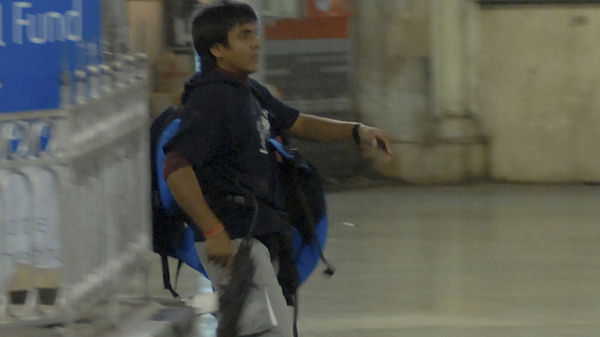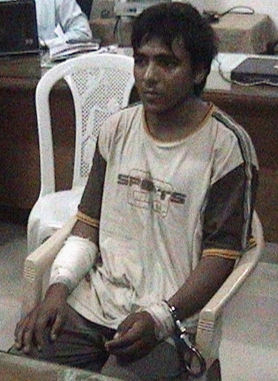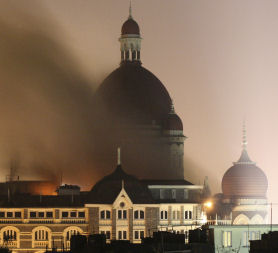Gunman ‘guilty’ of Mumbai terror attacks
It was “never any real surprise” when the only gunman captured alive after the 2008 Mumbai terror attacks was convicted of murder and waging war, says Asia Correspondent Nick Paton Walsh.

Mohammad Ajmal Kasab was the first person to be convicted over the 2008 Mumbai attacks.
The judge declared “It was not a simple act of murder. It was war”.
And India’s Home Minister Palaniappan Chidambaram said the guilty verdict was a message to Pakistan that it should not “export terrorism to India”.
At least 166 people, including foreigners and wealthy business people, were killed by ten Pakistani gunmen who held the city under virtual siege for two-and-a-half-days in November 2008.
“It was not a simple act of murder. It was war.”
Among the targets were two luxury hotels, the main railway station, a tourist cafe and a Jewish centre.
Twenty-two-year-old Kasab was accused of taking part in the bloodiest incident – when 58 people were gunned down in Mumbai’s crowded train station.
Kasab had been caught on film walking through the station carrying an AK47 rifle and a backpack, and was identified by numerous witnesses.
He was arrested on the first night of the attacks, initially confessing to police but then claiming he had been framed.
Three months later, Kasab confessed again, before retracting his statement in December 2009, this time claiming he had been in India trying to break into Bollywood acting.
Mumbai terror suspect warned of attacks

Channel 4 News Asia Correspondent Nick Paton Walsh writes:
The verdict was never any real surprise, and if the sentence, expected perhaps later this week, is any less than the death penalty, the Indian government will face a considerable outpouring of nationalistic anger.
It's hard to imagine how the case against the sole surviving Mumbai gunman, Ajmal Kasab, could have been any more watertight.
He is the man in the almost-iconic image of the brutal attacks - the still picture of a young man in blue in the CST railway terminus toting an AK47 with a backpack carrying the rest of his destructive wares. He was caught at the scene.
He confessed (then retracted his confession, despite a lot of it having been broadcast on video by Channel Four's Dispatches).
The court heard over 650 witnesses and received an 11,000 page case from the prosecution.
Emotionally, the Indian press is brimming with the victims: the mother of a boy shot for giving Kasab a glass of water; the parent of a girl shot in the leg by him at the railway station. None of them able to understand why he has been awarded due legal process before his inevitable hanging.
But for many Indians, it is in fact Pakistan on trial.

Kasab has been sentenced to death on four counts and to a life sentence on five other counts.
The Indian government believes Kasab and the other Mumbai attackers were part of the Pakistani militant group Lashkar-e-Taiba, a terrorist faction fighting to free Kashmir from Indian rule.
India also wants access to American David Headley, who has admitted helping to plan the Mumbai attacks.
The United States has agreed to let Indian investigators question him, but will not allow his extradition. Indian investigators were granted access to Headley in the US for a week in June 2010.




